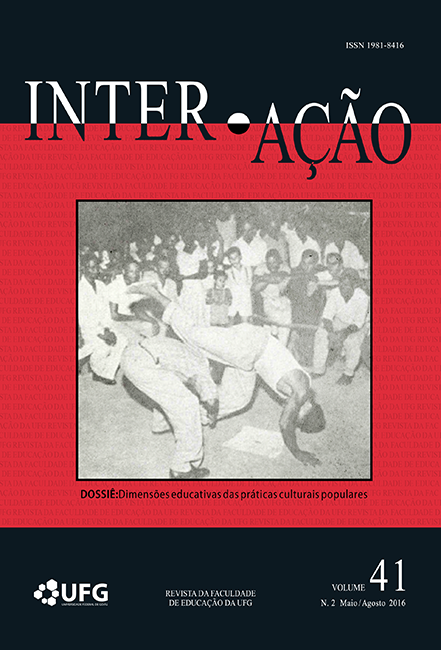DIMENSÕES SÓCIO-EDUCATIVAS DO TEATRO DO OPRIMIDO: CULTURA, TEATRO E EDUCAÇÃO POPULARES
DOI:
https://doi.org/10.5216/ia.v41i2.40762Keywords:
cultura popular, Teatro do Oprimido, opressão, pluralismoAbstract
O presente artigo divide-se em duas partes: uma discussão com base em aportes teóricos e um relato de uma experiência. Partindo de uma breve narrativa histórica sobre o conceito de cultura popular enquanto uma categoria intelectual, presente em alguns movimentos sociais de esquerda brasileiros durante as décadas de 50 e 60, destaca a importância deste conceito em Augusto Boal. Em seguida, caracteriza o Teatro do Oprimido (TO) dentro de uma determinada tradição de teatro popular, o teatro político. Por fim, relata uma experiência num curso de formação no Centro de Teatro do Oprimido, onde discute-se também o que vem a ser “opressão” e como alguns potenciais educativos do TO têm contribuído para repensar a educação popular no contexto atual e ampliar as possibilidades do fazer pedagógico em geral.Downloads
Downloads
Published
How to Cite
Issue
Section
License
Inter-Ação uses the Creative Commons Attribution 4.0 License for Open Access Journals (Open Archives Initiative - OAI) as the basis for the transfer of rights. Open access means making documents available on the Internet free of charge, so that users can read, download, copy, distribute, print, search, or link to the full text of documents, process them for indexing, use them as input data for software programs, or use them for any other lawful purpose, without financial, legal, or technical barriers.
Authors publishing in this journal agree to the following conditions:
1) Authors retain copyright and grant the journal the right of first publication, with the work simultaneously licensed under the Creative Commons Attribution License, which permits redistribution of the work with attribution and first publication in this journal.
2) Authors are permitted to enter into additional, separate agreements for non-exclusive distribution of the version of the work published in this journal (e.g., for publication in an institutional repository or as a book chapter), with attribution and first publication in this journal.
3) Authors are permitted and encouraged to publish and distribute their work online (e.g. in institutional repositories or on their home page) at any time before or during the editorial process, as this may generate productive changes as well as increase the impact and citation of the published work.















